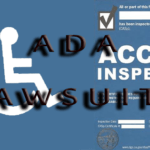Many people do not realize that the United States has a unique taxation philosophy – all of any United States resident or citizen’s income, earned anywhere in the world, is taxable here in the United States. It bears repeating – if you are an immigrant or citizen and you have money in an account in your home country, not only is that interest income taxable here, but you must report that foreign account to the IRS on your yearly tax returns, if the balances on your foreign accounts exceed $10,000 at any point during the year. When we tell our clients about this policy, they often don’t believe us. It does not make sense to them, but it is the way that the United States tax system works.
As a result, those who have foreign bank accounts and investments have often not reported these accounts and the income derived from them. Although this was illegal, the United States government did not have the ability to discover what was in these accounts automatically, the way they would with domestic financial institutions, so non-reporters often faced no consequences.
But, as of July 1, 2014, that has all changed. The United States has begun seriously going after overseas bank accounts. The Foreign Account Tax Compliance Act (“FATCA”) has mobilized the State Department to actively seek treaties that require foreign financial institutions to report account information of US residents and citizens to the IRS. Over 100 nations have signed such treaties. In fact, since the banks, investment houses and financial institutions of those nations are obligated to report, even for accounts in non-signatory countries, your account may not be safe, even if it is located in a “safe” country. Furthermore, the State Department is actively pursuing all nations around the world, and is getting more countries signed up each month. For example, Switzerland, one of the most famous bank havens in the world, was signed up well over a year ago. Already, foreign institutions are now sharing their account information with the IRS.
At the end of this post, there is a list of websites with more information, including a list of countries that have agreed to share information with the United States.
What Does FATCA Mean for You?
FATCA means that your overseas financial institution will now report your account balance and earnings to the IRS. Just as the IRS knows how much income you had from your employer’s W-2 form or 1099 form, it now knows how much money is held in foreign banks, investments and other financial instruments. If you have not previously voluntarily reported on the account, you will be liable for a penalty.
These laws and reporting apply to any United States resident or citizen. Permanent residents (holders of “green cards”) and anyone that has lived in the United States for more than 180 days of the year are included, as well as citizens. In fact, US citizens or permanent residents that live and work overseas must also file US tax returns, including reporting on their foreign bank accounts.
The penalty comes in two tiers. For those that innocently, through lack of knowledge, did not report on these accounts, the penalty is $10,000 per account per year, for up to 6 years. Thus, someone with two overseas accounts for the past 5 years would owe $50,000 per account ($10,000 for 5 years) for a total of $100,000. This penalty is not related to the amount of taxes you owe on the income or on the bank balance. You could owe this penalty even if the total amount of money overseas was as little as $40,000.
The second tier is for those who have willfully avoided reporting their accounts. In other words, those that knew of the requirement, but purposefully failed to comply. This penalty is 50% of the account balance for each year it was unreported, up to 6 years. That means up to 300% of the balance. For example, if you had $100,000 in an unreported overseas account for six years, then you could be liable for a $300,000 fine. In addition, this tier may involve criminal charges, with penalties that could include jail time. This is easily the harshest penalty for any tax matter.
How Can You Protect Yourself?
Fortunately for those with overseas accounts, there is a much cheaper alternative. The IRS has an amnesty program for those that voluntarily and truthfully disclose their foreign bank accounts. Until recently, the voluntary disclosure program carried a cost of 27.5% of the balance in the foreign account. But, as of July 1, 2014, they have reduced that to 5% for most taxpayers (the ones that would qualify for the first tier penalty described above), depending upon circumstances. As long as you or your overseas financial institution is not currently under IRS scrutiny, you may qualify for a voluntary disclosure program with just a fraction of the penalties for non-disclosure.
What is the Risk of Non-Disclosure?
The difference between voluntary disclosure and non-disclosure is stark. Non-disclosers may owe up to 300% of the bank balance. For some, that is more money than they currently own. Even those that qualify for the first tier penalty could easily owe over $100,000, even on relatively small accounts. Compared to that, 5% of the bank balance for voluntarily disclosure is a negligible amount.
Let’s consider an example – a person with two accounts overseas, a checking account of $20,000 and a savings account with $30,000 for a total of $50,000 and a simple domestic tax return without complex issues. The first tier penalty on this money would be $120,000. The second tier penalty would be $150,000 and possible criminal prosecution. However, if they qualify as not willful, and voluntarily disclose, they would owe an estimated $1,000 of back taxes and penalties (this depends on many factors, including which country, the interest rate and past exchange rates), $2,500 for the 5% penalty and estimated attorney’s fees of $3,000 (this also depends on many factors and is made assuming a simple tax return and simple interest income from overseas) for a total of $6,500.
The difference is striking – $6,500 compared to $120,000 or even $150,000. Moreover, the longer you delay disclosure, the more willful it will look in the IRS’ eyes and the more likely that you will be assessed at the second tier penalty.
Also a word of warning to those that have recently or will soon close those overseas accounts – the information gathering and reporting requirements go back up to 6 years, so you could still be on the hook for large fines. Simply closing the accounts and moving the money back to the United States may not protect you.
How Do I Take Advantage?
Unless your overseas accounts are small, the best route is to hire a professional. Unlike some other tax matters, a Report of Foreign Bank and Financial Accounts (“FBAR”) is a complicated matter that requires professional help. Not only will you have to properly report several years of records and accounts, but you will have to amend your past tax returns to account for the changes. Not to mention protecting you from any further consequences and minimizing your new tax liability.
If possible, find a firm like ours where the entire FBAR process is in-house, to reduce your overall costs, since there won’t be any extra bills for the exchanges between the accountants and your lawyer. Although it may be tempting to use a CPA instead of a lawyer for this process, only a lawyer offers attorney-client privilege protection that could become critical if you are judged to have willfully failed to report your accounts.
If you have any questions regarding your foreign accounts or would like to learn more about your liability, please contact us at 949-287-6901 to make an appointment.
Resources
List of nations that are currently reporting to the US:
http://www.treasury.gov/resource-center/tax-policy/treaties/Pages/FATCA-Archive.aspx
Foreign assets reportable on your US tax return:
http://www.irs.gov/Businesses/TypesofForeignAssetsandWhetherTheyareReportableonForm-8938
IRS FAQ on the voluntary disclosure program (some of this information is outdated as of 7/1/2014)”
Comparison between Form 8938 and Form 114 reporting requirements:
http://www.irs.gov/Businesses/Comparison-of-Form-8938-and-FBAR-Requirements







